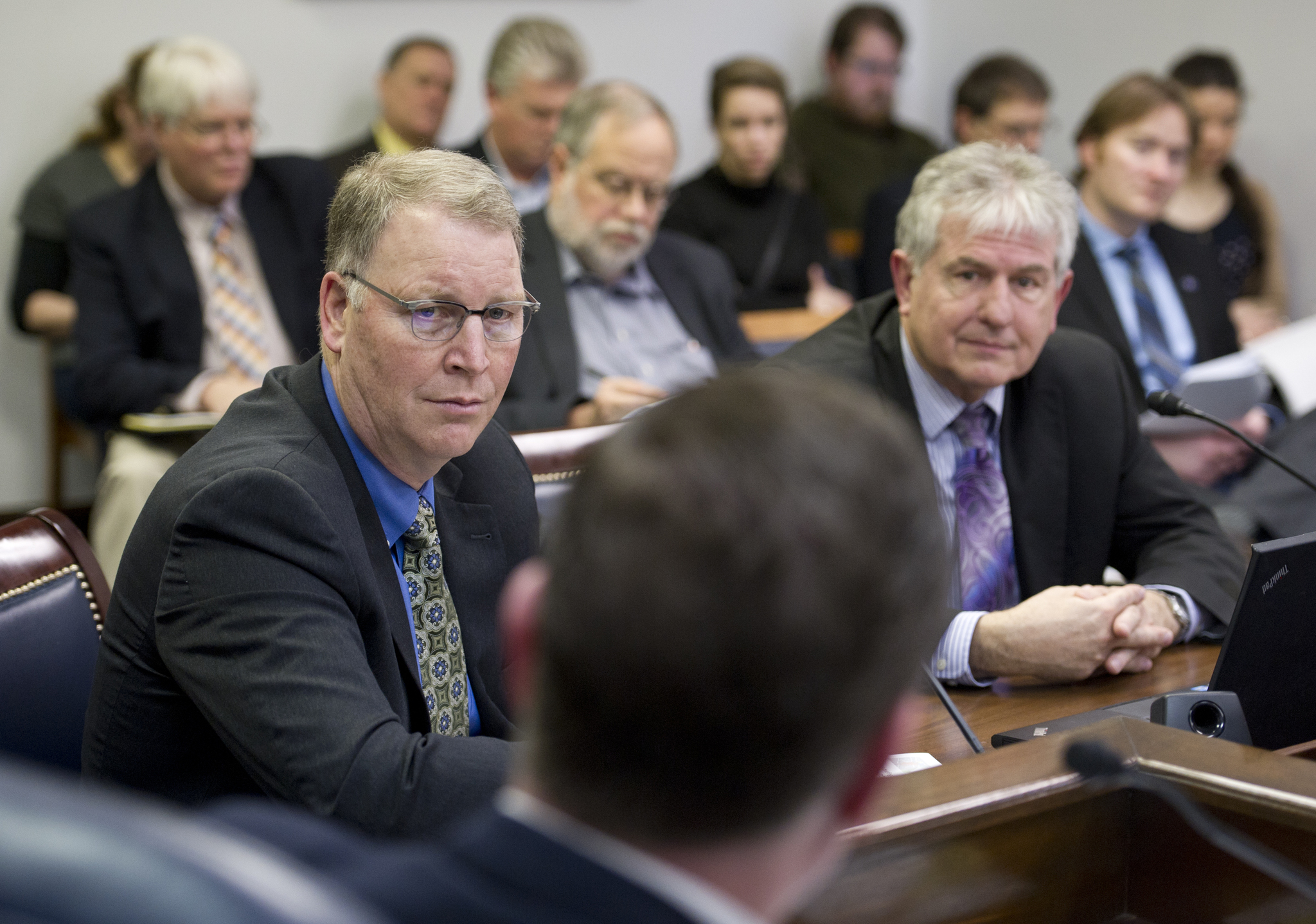A proposal by Gov. Bill Walker to triple the state’s gasoline tax by 2018 has gotten its first hearing in the Alaska Legislature.
On Tuesday, the House Transportation Committee heard the initial presentation for House Bill 60, which proposes to increase Alaska’s state gasoline tax from 8 cents per gallon to 16 cents per gallon on July 1, 2017, then to 24 cents per gallon on July 1, 2018.
Those figures do not include a 0.95-cent-per-gallon surcharge levied to pay for spill response.
Taxes on marine fuel, aviation gasoline and jet fuel would also be doubled, then tripled, on the same schedule.
Alaska has the lowest gasoline taxes in the United States, and the increase would still leave the state below average nationally.
At the pump, 30.65 cents of every Alaska gasoline gallon includes state and federal taxes and surcharges. The national average is 49.44 cents. Pennsylvania, the state with the highest taxes, pays 76.60 cents per gallon in taxes and fees.
Speaking Tuesday to the committee, deputy revenue commissioner Jerry Burnett said the tax hike is an “integral part” of Walker’s plan to reduce Alaska’s $3 billion annual deficit.
While the tax hike would only raise $40 million in new revenue during Fiscal Year 2018, and $80 million from Fiscal Year 2019 onward, that money would be dedicated to transportation funding instead of being deposited in the state’s general fund.
Speaking in a January press conference, Senate President Pete Kelly, R-Fairbanks said that with the dedicated structure, he sees the increase as a “user fee” rather than a true tax hike.
Transportation commissioner Marc Luiken said Tuesday that the new revenue would go to the Alaska Transportation Maintenance Fund, to the Alaska Marine Highway System and to state airports.
According to Luiken’s presentation, the proportion of the transportation budget funded by dedicated fees would rise from 10.92 percent to 21.83 percent, making it less vulnerable to year-by-year fluctuations.
Some lawmakers raised early concerns with the proposal.
Rep. Colleen Sullivan-Leonard, R-Wasilla, said she’s worried that the Matanuska-Susitna Borough, which has a large number of workers who commute to Anchorage, would be disproportionately affected by a tax increase.
“It will be very burdensome on our Mat-Su residents, and maybe I shouldn’t pinpoint Mat-Su, but I think it’s important to do so,” she said.
Rep. Mark Neuman, R-Big Lake, had multiple questions about the impact of the fee hike in Bush Alaska, where residents use four-wheelers and snowmachines to travel.
The bill was held in committee for additional hearings. No additional hearings have yet been scheduled, but staff said those should be calendared by Thursday.
• Contact reporter James Brooks at james.k.brooks@juneauempire.com.

